Hello dear beloved community, in my last post, I shared my experience with the challenges I encountered and how I was able to successfully manage over 215,975 oil palm seedlings out of 220,000 at the pre-nursery. Today, I would love to share another facet of the journey managing the challenges I encountered before and during the transplanting of oil palm seedlings at the main nursery. The main nursery, prepared for the oil palm seedlings, spans about 22 hectares with a bag spacing of 60cm apart in a triangular pattern. We were given 1 month to complete the filling of 220,000 polybags before the pre-nursery seedlings become ready for transplanting. I had over 20 contracted workers for this task, with one worker heading the team. However, the task wasn't achievable due to the following challenges I encountered.
Challenge 1: Bad Quality Polybags.
This was a terrible experience for me. Before starting the operation, my boss told me that 100,000 polybags had already been purchased. I went to the estate store to request 10,000 polybags to start with, and I was disappointed with the poor quality of the purchased polybags. They were too light, had large and tiny holes. I took some samples to show my boss, and he advised me to manage them as they were purchased by the former Nursery Supervisor. If any got damaged, I was supposed to return it to the store for replacement. I was surprised that such poor quality bags were purchased without proper quality checks. I had no other option but to engage my contracted workers in the bag filling. Out of the 100,000 polybags used, 20,000 were damaged during the process, which I had to return. Fortunately, I met the supplier with another set of 50,000 polybags at the store. I complained about the bad quality, but the supplier tried to bribe me, telling me how his bags were accepted by the former supervisor. I rejected his offer, maintained my principles, and discussed with my boss about the implications of using these bad polybags. With my knowledge of good quality polybags, I raised a PR for 15"×18" black polybags with 400 microns thickness and 500 gauges, which my boss approved. After a week, I was called by the store supervisor to come and check the quality, which I did with my boss. All specifications were confirmed, but it turned out to be a recycled product. I showed my boss the difference between recycled and non-recycled polybags and explained the texture. My boss told me to manage it, given our limited time left to complete the bagging operation, so we continued. These polybags were much better than the previous ones, and we had fewer damages during bagging.
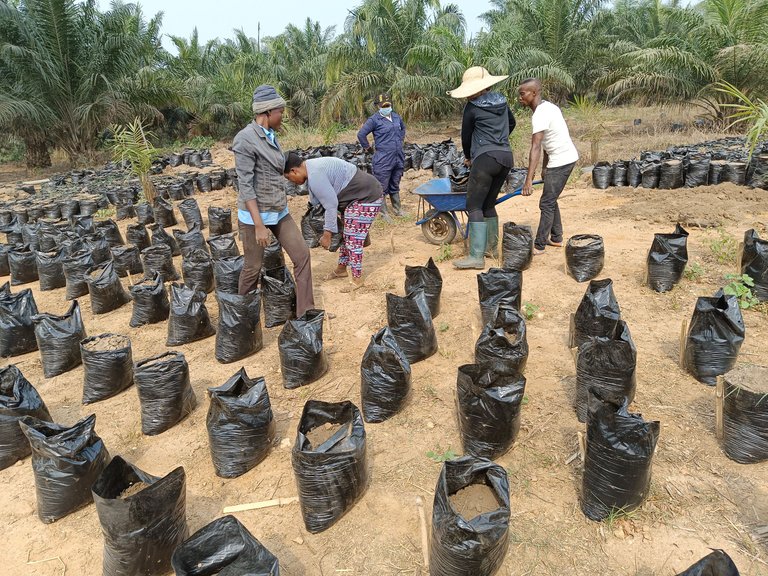
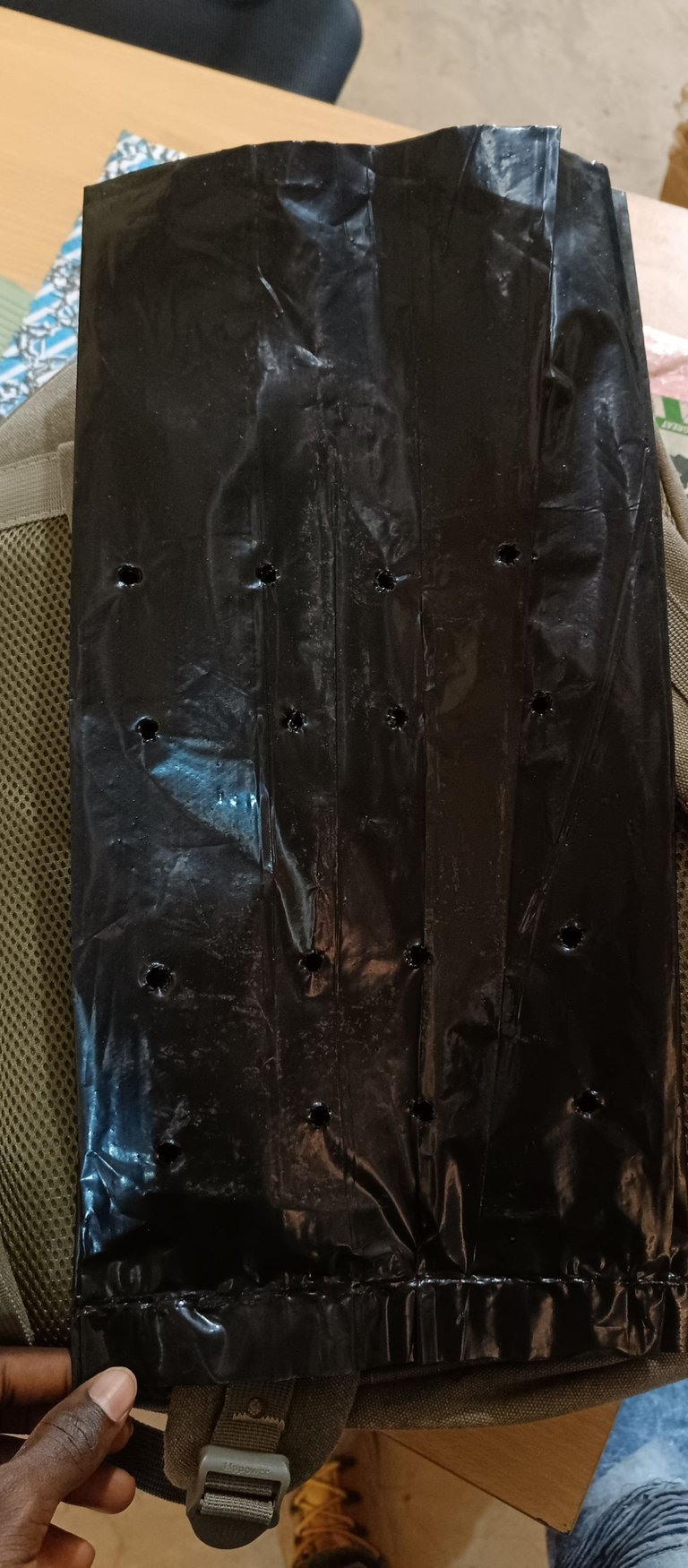
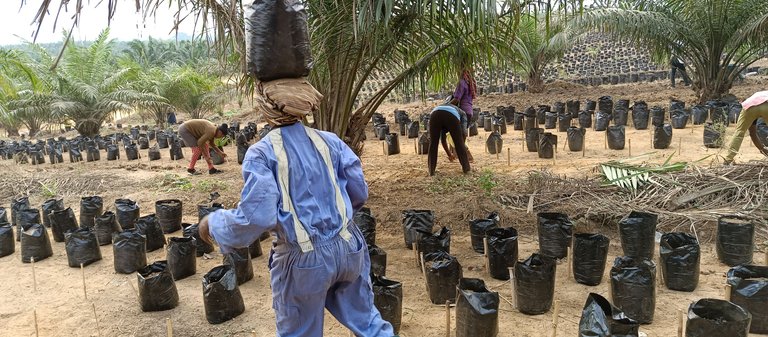
Challenge 2: Scarcity of Cash.
This was another significant challenge for us. During this period of operation, the Nigerian government banned the use of old naira notes and introduced the new naira notes that were not yet in sufficient circulation. We could no longer maintain the 2-week agreement of payment for contract workers. My workers were frustrated, and their numbers started reducing. My boss tried to resolve the situation by offering bank transfers, but they declined due to high fees for withdrawing from a Point of Sale (POS) agent. It was a difficult situation. To resolve this issue, I developed a plan and proposed to my boss that five contract workers with the highest productivity should be retained as permanent workers at the nursery. This idea motivated the contract workers, and they continued despite the cash scarcity. The naira scarcity continued for two months, causing delays in the bagging operation.
Challenge 3: Late Procurement of Irrigation Items.
After filling over 80,000 polybags, I engaged my irrigation team to start the construction of the pipes. However, there were more pipes and few sumisansui irrigation tubes available in the store. Procuring the irrigation items got delayed due to the naira scarcity. I came up with an alternative solution as i directed my irrigation team to use the old irrigation tubes that were slightly damaged. I showed them how to make them useful again by cutting 2 inches of the tubes to fix in the tubes with severe leakage. Additionally, short irrigation tubes were joined together using a 3/4" pipe fixed in both tubes and bound with a rubberband tire tube. This solution was effective, and the operation continued.
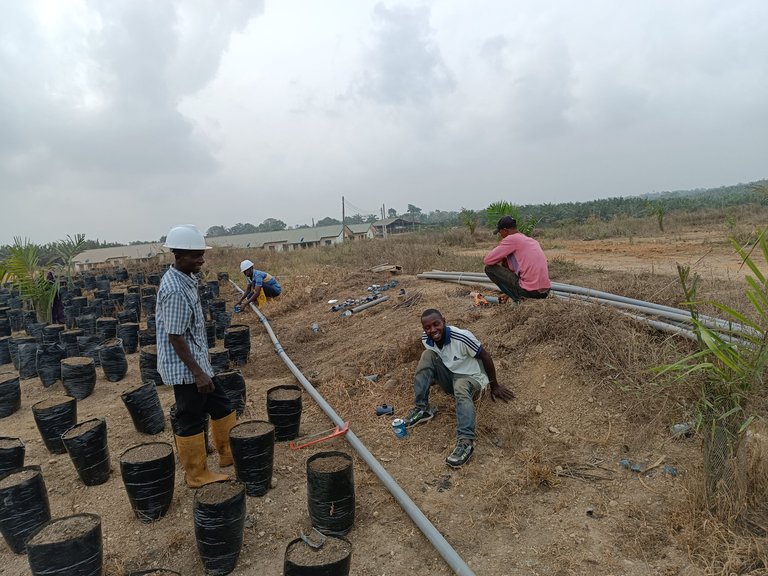
The management directed us to start the transplanting operations, as it was already too late, and the seedlings had outgrown the pre-nursery stage. We were given 1 month to complete the transplanting operations, which presented a very challenging task for me due to the following:
Challenge 1: Insufficient Workers.
I faced a shortage of workers, as the ones I had were already engaged in multiple operations in the nursery, such as weeding, holling, soil topping of bags, lining for bag placement, shifting of filled bags, spraying, pruning, and loading of existing 28,000 matured seedlings for transplanting to the main field. I requested more workers from the main field to assist with the transplanting operations, but my boss couldn't provide them due to ongoing activities in the main field and pending approval from the General Manager for new recruitment. This situation was devastating. The estate was divided into five divisions, and I was tasked with supplying matured seedlings upon request from field supervisors for each division. I had a good collaboration with the supervisors, and they provided workers for pruning and loading of seedlings while I retained my workers for the planting operations. I also redirected workers from lining operations to participate in planting, which allowed me to gather a total of 15 workers for the operation. I assigned 5 workers at the pre-nursery with 3 loading and 2 stacking in the tractor while I assigned 10 workers at the main nursery with 2 offloading, 4 distributing the seedlings beside each bags, 1 worker applying fertilizer and 3 planting. Before the planting operations started, my boss came to show us how we should apply the fertilizer and plant the seedlings.
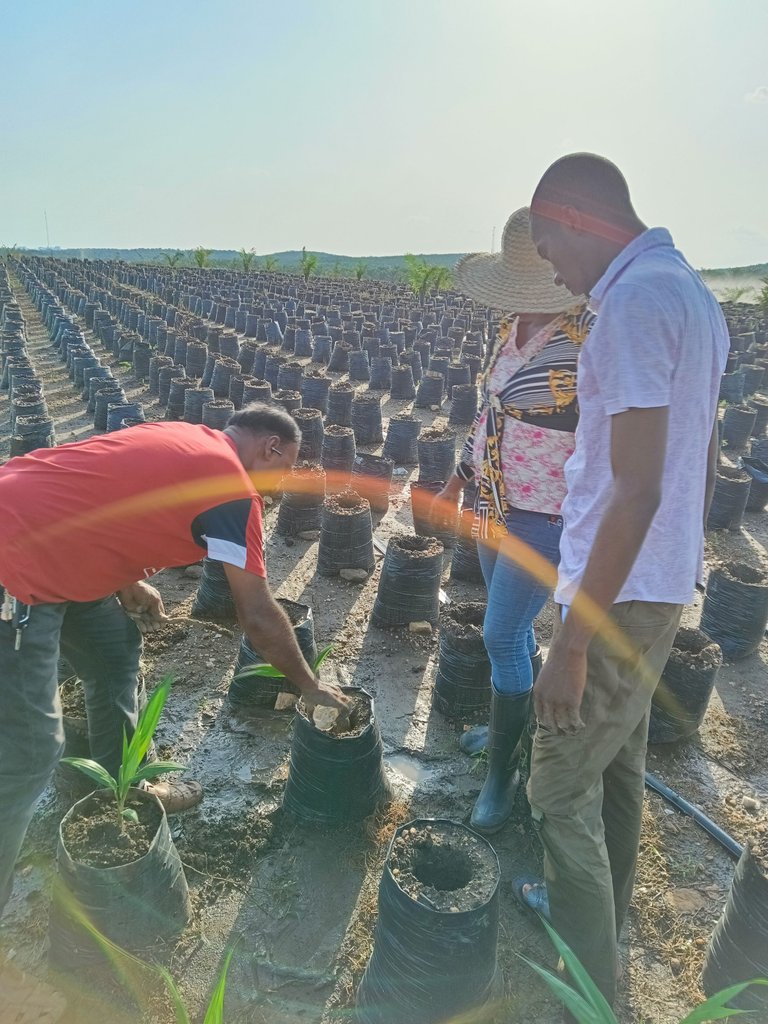
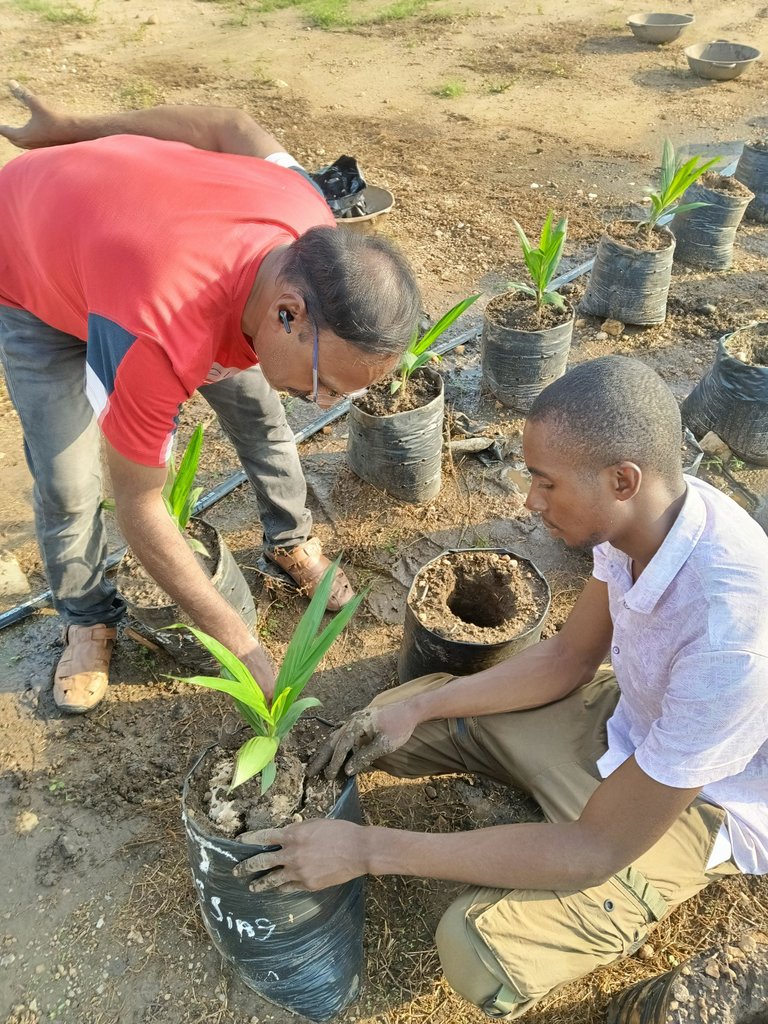
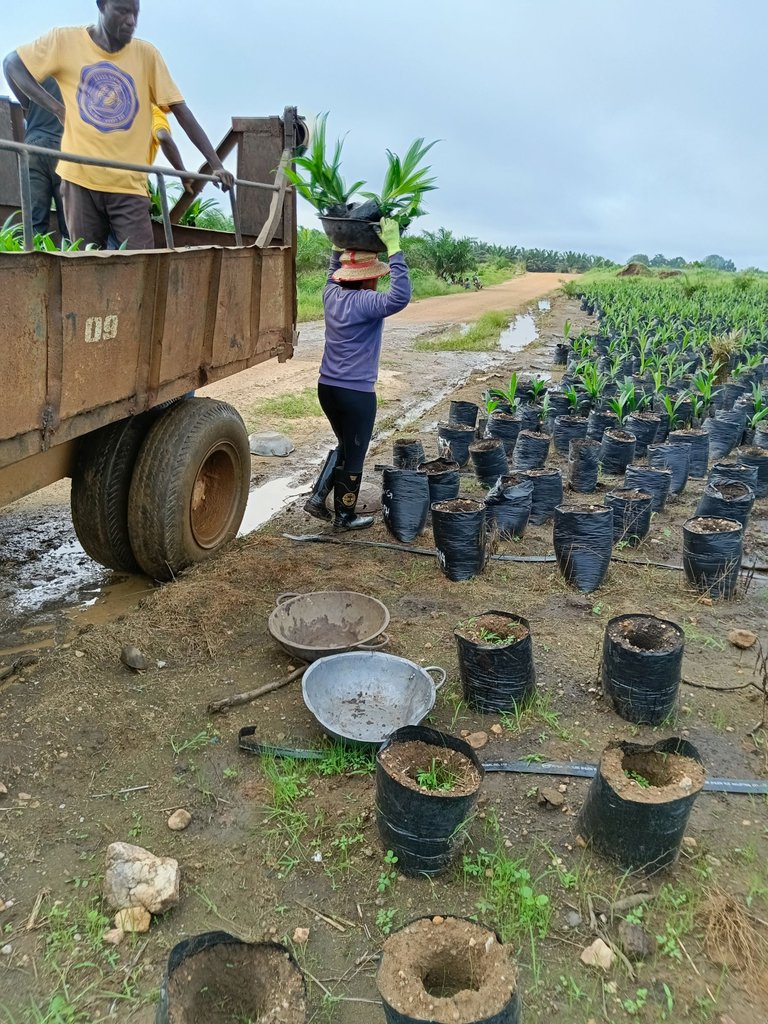
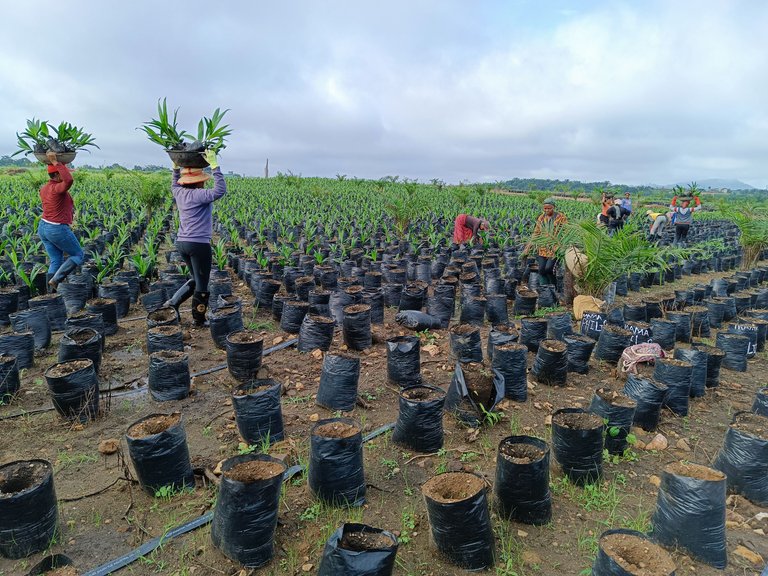
Challenge 2: Bags Getting Damaged During Planting Operations. This was a serious issue that caused delays in the planting process. It's often said that if you don't get the foundation right, you'll face costly damage repairs later. The process of planting, had the poor quality bags torn, so I had to engage three workers from the weeding team to start changing the bags. However, I was concerned about disturbing the roots during the bag changing process, so I came up with an alternative solution. I showed my workers how to open the bag carefully, fix it on the planted seedlings, and tie it with raffia strings. My boss found this approach amusing but appreciated my effort. I also halted the soil topping operation and assigned those workers to planting, increasing the planting team to about ten workers. I provided them with snacks and water to boost their morale, and their increased effort led to planting over 35,000 seedlings in two weeks.
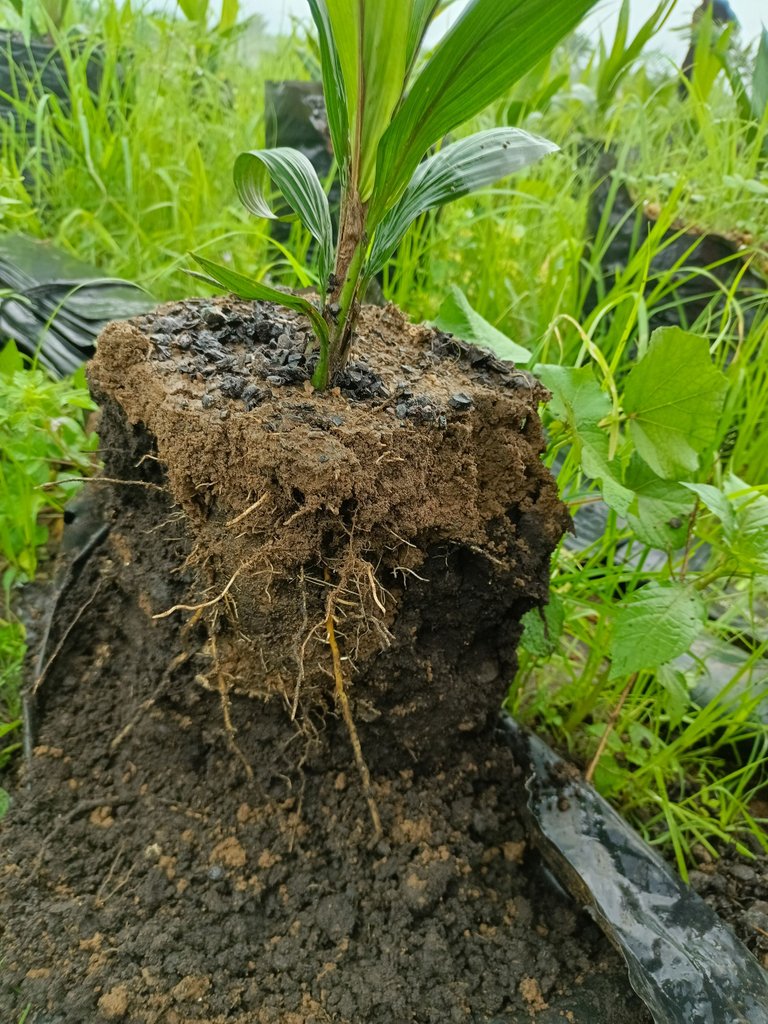
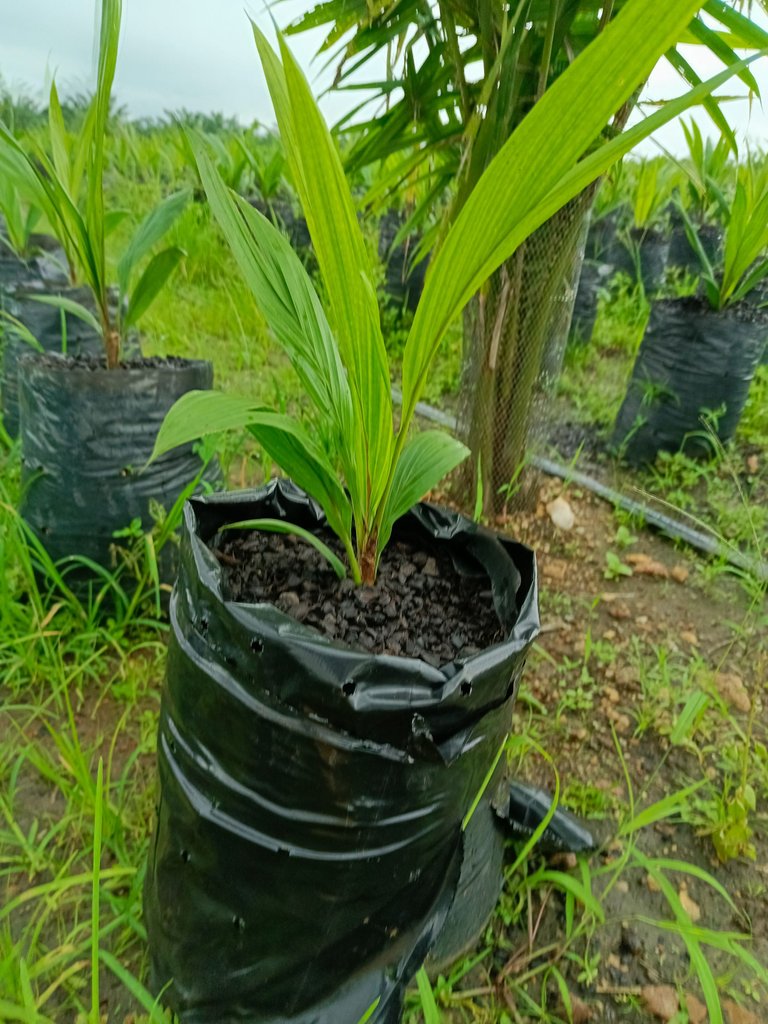


Challenge 3: Lack of Mobility.
This was a significant challenge for me, as i wasn't provided any means of mobility, leading to physical and mental distress. My boss explained that a bike was not approved for me because i was still under a 6-month of probation period. I had to trek within the nurseries, checking all working operations from pre-nursery to the main nursery and the office for making reports. I got worried because i was not considered that I have already worked for the company as an assistant supervisor at the agronomy section during my 1-year compulsory National Youth Service and my involvement in monitoring Weighbridge and Ramp operations. Despite these challenges, I kept pushing forward as a personal development endeavor. To reduce the stress of trekking, I used some of my workers' bikes to monitor all the operations at the nursery.
In Conclusion:
During the ongoing nursery operations, I got a job I applied for as a Field Officer AgriTec at ETG Beyond Beans Foundation Nigeria. 😊 I know you guys are supprised right? I was so delighted and had to leave the job I was doing because it really affected my health loosing so much weight with a very little payment and moved to a better job offer. I discussed it with my boss and he felt so worried trying to convince me but i didn't agree telling him how I have been contributing greatly to the company but the pay is too miger with high tasking job. He understood my pain and had to organize a send off party for me at the nursery with my workers. I forfeited my 1 month salary after which I was told to train the new incoming supervisor sent from the main field to the nursery for 1 week and handed over the company properties before I left the organization.
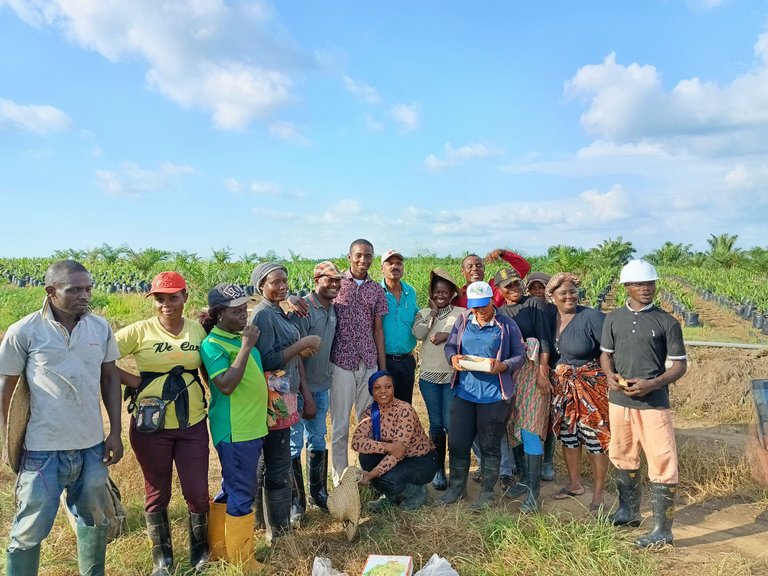
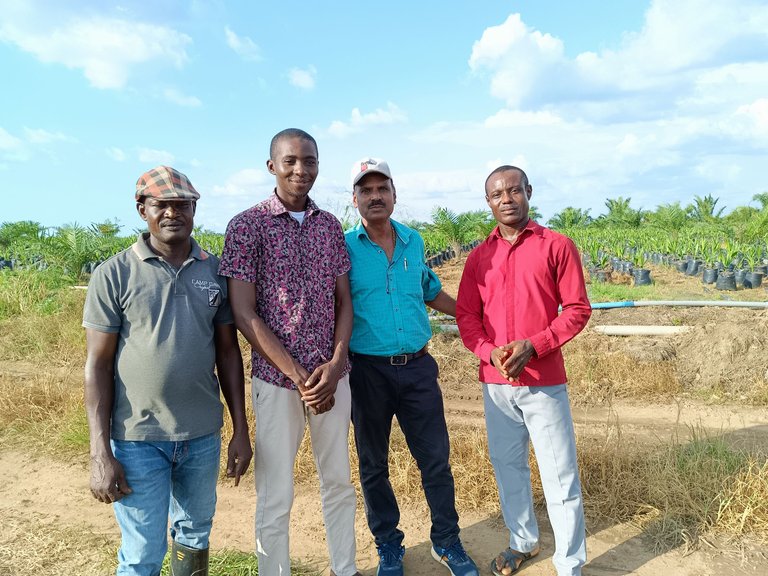
This is how I managed the challenges i faced at the Main-nursery operations. I'd like to highlight some key points for a successful field operation:
- Show kindness to your workers.
- Maintain strong self-discipline.
- Don't give up in complex situations; always seek alternative solutions for a successful operation.
- When in a position within an organization, treat it as if it's your own and give it your best.
- Keep putting in effort for a successful operation, even if you're not well compensated. It promotes self-growth for better opportunities in the future.
Thank you for reading 😊 I hope I've been able to guide anyone planning to venture into Oil palm nursery operations. Wishing u success as you start your journey into oil palm nursery operations.